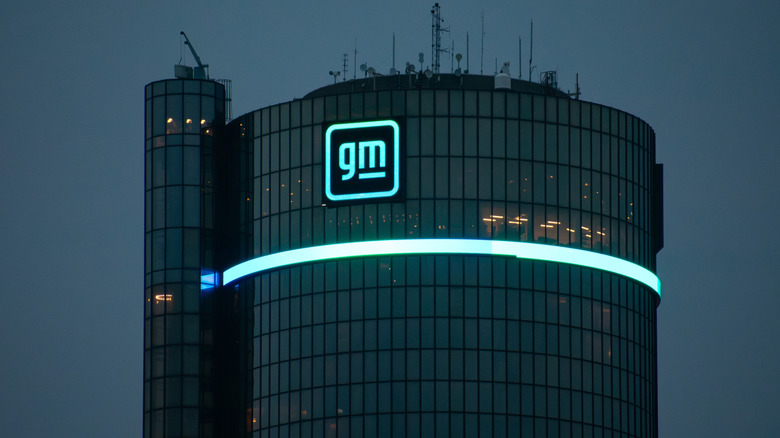GM Takes A $1.6B Hit After Fed Reverses On EVs
For a few years, it looked like the American automotive industry would slowly move away from internal combustion engines, and focus instead on electric vehicles. In August of 2024, American manufacturer General Motors told EV Magazine they were planning for a future comprised entirely of electric cars. That included an investment of $35 billion to phase out gas and diesel vehicles by 2035. More recently, Ford announced a $5 billion plan to create a lineup of affordable electric vehicles.
However, the tide may be turning back toward internal combustion engines and away from batteries. In July of 2025, the government made the decision to eliminate the federal EV tax credits that had been around since 2008. The announcement came just two months before the legislation was to take effect, and in that time, there was a massive jump in EV sales. Unfortunately, that jump in sales is starting to feel gravity as the tax credits are no longer available.
General Motors saw a response in its third-quarter sales report, stating the automotive manufacturer saw a loss of $1.6 billion. GM claimed that $1.2 billion of the losses came from "adjustments to [GM's] EV capacity."
What does this mean for GM's electric future?
As of right now, it means that the brand will slow down its electric vehicle production and research. Paul Jacobson, General Motors Chief Financial Officer, stated in September 2025 that although profitability needs scale, scaling up would go a little slower over the coming years.
Now, this doesn't mean that GM will eliminate its electric vehicle division entirely, as the brand has already invested a ton in EVs. Jacobson did mention seeing the bright side of this situation though, saying that GM will make a commitment to bringing down the price of its current EV lineup. Jacobson added that the focus would go more into cost reductions for electric vehicles, instead of making the lineup larger.
This slow down in EV production will also affect plants in Spring Hill, Tennessee and Hamtramck, Michigan, where the American brand had been building batteries in partnership with LG Energy Solution.
What are other brands doing?
It's not just General Motors who has to figure out a workaround for the elimination of the EV tax credits, as it affects every other automaker as well. Hyundai recently cut the price of one of its most popular vehicles, the Ioniq 5, by nearly $10,000 in some of the upper trim levels. Ford is also in the same boat, as we mentioned earlier, and it plans on offering 0% financing lease deals on its EVs.
Stellantis, the parent company of Jeep, Ram, Chrysler, is currently offering its EVs at a $7,500 discount, the same amount that the federal tax credit offered. Tesla did something similar, although the discount placed on its vehicles is less than what the tax credit offered.
Honda and Acura don't offer many EVs in North America, just the Prologue and the related Acura ZDX, although Acura nixed production of the ZDX recently. Mercedes-Benz went in a completely different direction than other brands, completely eliminating production of electric vehicles being build for the United States.


